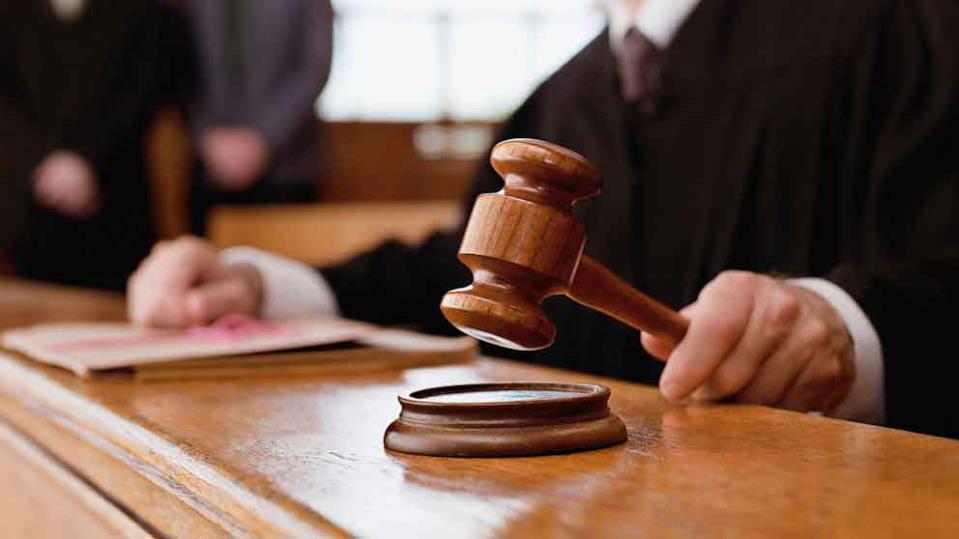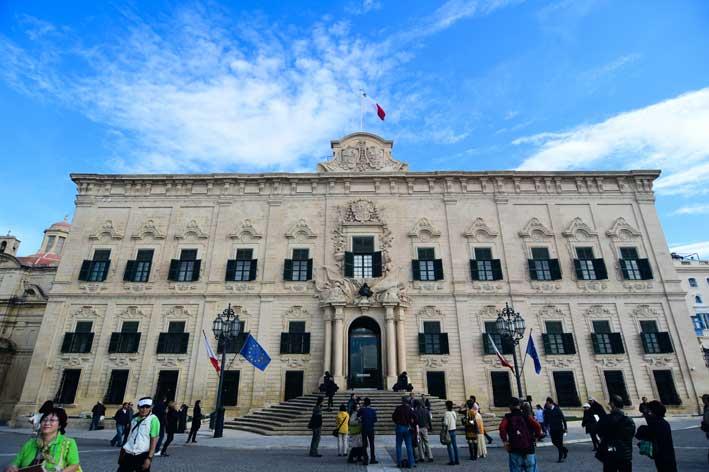Despite Finance Minister Edward Scicluna nonchalantly saying that there is no crisis in the rental market, thousands of local tenants, both Maltese and foreign, strongly beg to differ. They also have the war stories and proof to back this up.
Founder of Malta Tenant Support Johanna Axisa Macrae explains the multiple levels of problems people face when trying to rent a property in Malta.
Increasing rental prices
Ms Macrae was quick to squash the assertion being made by developers and the Finance Minister, that we have seen an increase in rental prices because supply is not keeping up with demand.
"Malta is a warm, English-speaking country with opportunities for jobs or to set up a business. While people keep building more flats and crowding out the island, demand seems to be never-ending. When these guys say that supply just needs to catch up with demand, have studies been undertaken? Have impact assessments been carried out?
She referred to a media report where it said that 20,000 more foreign workers are needed to prop up for the economy.
"Has anybody done their homework to figure out what this could mean for the rental market? Problems cannot be looked at in isolation, we need to join the dots."
Rental prices have increased exponentially over the past few years when compared to the rate of increase previously. Should government win the bid for projects like housing the European Medicine Authority, and extensions on the controversial citizenship-by-investment scheme which requires either renting or buying, the rental prices are sure to continue to soar.

On this note, Ms Macrae asked whether everything on this island is for sale.
"Are we looking at all the costs? I mean the fact that we do not have green spaces is a whole other issue. Our favourite parts of Malta are always the North of the South, the less developed areas that have some semblance of open space. Doesn't that tell us something?
"A recent media report by LovinMalta exposed how the average one-bedroom apartment now costs more than the minimum wage. While the government has embarked on multiple projects to construct more social housing, a vacuum certainly exists until then. Many also question whether this goes far enough, and why the government does not regulate long-let rent.
"As far as I know, Malta is the only country to have zero regulations for long-lets. I do not mean price-control per se, but in other aspects. For example, government does a good job with regulating the short-let market fairly, with sporadic inspections and the need to get some form of license. I am not saying government should impose a license for long-lets, but it should not completely abandon long-let regulation like it has been doing.
Ms Macrae made reference to a Caritas study which gave an overview of how much money one needs to 'exist' in Malta. By existing, this speaks of keeping up with the most basic expenditure, housing, food, utilities, etc.
"This study shows in black-and-white how people who rent and are low-income earners cannot even afford to exist in Malta. The situation is not right."

Incorrect tariffs and tax-evading landlords
Ms Macrae explained that she began this crusade to make the rental market in Malta a fairer place when she moved back from Scotland and had to look for a property to rent before her family could buy a home.
"Our first year here, my husband was not working, I was working for €1,000 per month after working as a teacher for 15 years in Scotland. The five of us were supposed to live on €1,000 per month with a daughter at a Scottish University.
"After rent and utilities, we were left with €300 in hand to spend. How is anybody expected to survive like this? Luckily we had some savings, and a supportive family, but not everybody does.
"Also, those were our savings that we worked so hard to build, I did not want to dip into that. You are supposed to live on a wage. I have a university degree and worked as a teacher for 15 years, but I was still given a wage that was impossible to live on.
"I wasn't a minimum wage earner and I still could not cope. Let alone people who are lower skilled. It was such an eye opener, that so many people are living this desperate situation and there was nobody to go to."
Delving further into her story, Ms Macrae explained her surprise after renting her first property and finding out that she had no access to her bills.
"In the contract I had signed it said that the tenant is to pay €100 on account towards the ARMS bill, and I thought this was quite sensible. That €100 became €150, and towards the end it ended up being around €200 on account per month.
"We do not really use the air conditioner, so I wondered what on earth was going on. We were paying around €2,100 per year on utilities, now we pay €800-900 per year as homeowners.
"I did some research and I discovered that there are two tariffs, the domestic [more expensive, secondary home tariff] and the residential [cheaper, primary residence tariff].

Malta uses a two-tier tariff system where there is the cheaper residential tariff, and the more expensive domestic one. The thinking behind this is that a primary home, i.e. the place a person is residing full time should be charged on the cheaper residential tariff. The domestic tariff is there, in theory, for those who have the luxury of owning a second home, such as a summer residence, and is therefore not used as frequently as the primary residence.
"When you buy a property, in addition to transferring the account in your name you are supposed to list who would be living in the property on a separate form, known as Form H. If you buy a property to rent out, the tenant has to get your permission to be put on Form H, so that the tenant is charged on the residential tariff. As tenants, nobody informed us of any of this."

Garnishee orders and frozen bank accounts
She spoke of her very strong suspicion that her landlord at the time was not declaring his rental income, due to the fact that she had not been placed on the correct tariff. This means that getting permission to be placed on Form H, the correct residential tariff, would be out of the question as this leaves a paper trail for the authorities to have proof that tax evasion is occurring. An overwhelming number of tenants have come forward since this issue has been making headlines to describe their own harrowing disputes with landlords.
"As things stand, people not declaring their rental income are breaking the law. Through this, tenants are unable to apply for rent subsidies because this would again leave a paper trail. While the government tried to tackle this, there just aren't enough apartments available for rent for those tenants to move on.
"I believe there is an argument to be made that landlords living off the rent of a €600 per month apartment should not be taxed, as this does not amount to much, but as things stand they are breaking the law which indirectly leaves the tenant powerless and forced to cough up more money."
"The domestic tariff is meant for the summer residence. You are allowed 33 cubic metres of water, per year regardless of the number of people living in the property at, €2.19 per cubic metre.
"On the residential tariff, the allowance is 33 cubic metres of water per person per year, so if you are a family of five that is 165 cubic metres of water per year, at €1.40c per cubic meter.
"On the domestic tariff, once you breach that 33 cubic metres of water, which a family of five would exceed in two-three months, you had to pay €5.40c per cubic metre. It was more expensive at the time. And here you can see how €800 becomes €2,100."
When she realised by how much she had been overpaying, Ms Macrae contacted ARMS and was promptly given a lesson about how the state utility company do not carry out reforms to rectify the mistakes. She told her landlord she would not be paying the remainder of her last bill, amounting to around €1,600, because she was on the wrong tariff and this is essentially theft.
A long, drawn-out legal battle saw her slapped with a garnishee order and all her wages taken from her eventually culminated in a partial court victory.

Homeowners and tenants should be treated the same
"Everybody should have access to their own bill according to the EU energy directive. If you are on the domestic tariff, or if you're on the residential tariff on form H, you still don't have access to your bill. When I passed through that whole mess while I was a tenant, I very rarely saw a bill.
"Now as a homeowner who has access to my bill, all the ARMS bills I had received were incorrect. The first time they charged us for four people and not five, despite me having done everything asked of me to show that we were five.
"The second time they calculated our consumption over the wrong period of days. With tenants not having access to their bills, how can they make sure they are paying what they are meant to be paying and how can they settle any disputes because of frighteningly frequent mistakes made by ARMS? How is this fair in any way, shape or form?
"Now government has introduced a new form that allows you to bypass your landlord to be placed on the correct tariff, the only problem is that you need a spare €500 between the deposit and the application fee. This is completely discriminatory because homeowners are not made to do this.
"When I had written to Ombudsman Chief Justice Emeritus Joseph Said Pullicino about the whole ARMS issue and abusive higher utility rates, I was left speechless when he said: you know, sometimes tenants abscond on their bill.
"Oh, really? In practically all Western countries it is the tenant who is responsible for their bill, with the name on their account, and companies chase the tenants not the landlord. How come it works elsewhere with populations of millions and not here? Why is anybody accepting this situation?"
She concluded by saying as things stand, the tenants have zero power and the law works to protect ARMS first and foremost, then the landlord.